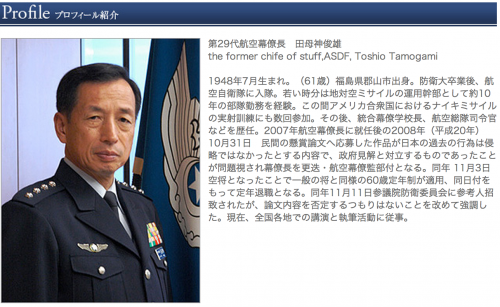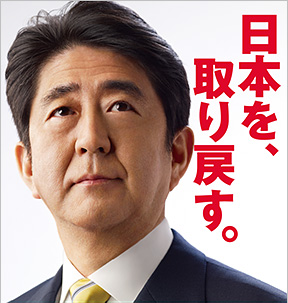We are less than a month away from the gubernatorial election in Tokyo, with the campaign officially starting a week from today, and it seems like it may be a key part of yet another massive political realignment.
Until last week, Yoichi Masuzoe was looking like a shoo-in, with the support of the Abe government and very strong results in both LDP and DPJ polls. Then former prime minister Morihiro Hosokawa, who led a coalition that briefly broke the LDP’s uncontested decades of power in 1993, came out of nowhere and announced his candidacy a couple of days ago on a platform strongly opposing the restart of nuclear power. He has the backing of none other than former LDP prime minister Junichiro Koizumi, who stood beside him for the announcement. According to some reports, perennial back room fixer and band destroyer Ichiro Ozawa is also behind the Hosokawa campaign. Meanwhile, Koizumi’s son Shinjiro, who has quietly become the most popular active politician within the LDP, is criticizing Abe for supporting Masuzoe, who ditched the party in 2009 to start his own third party that went nowhere — this despite the fact that there are no other potential candidates within the LDP who poll nearly as highly as Masuzoe.
Hosokawa and the alliance supporting him seem to be getting a groundswell of momentum, despite an obvious defect in his candidacy: he resigned as prime minister in 1994 because of a scandal that was essentially exactly the same as the scandal that just took down Governor Inose. Here is Hosokawa in April 1994:
Hosokawa has been fending off allegations that he accepted an improper donation of 100 million yen ($970,000) from a trucking company previously accused of bribery and links to organized crime. He has admitted receiving the money, but says it was a loan. His opponents say it was a bribe.
The sense of irony here is palpable. The coalition that Hosokawa heads came to power last August promising an end to the so-called money politics of the Liberal Democratic Party, which the coalition displaced. Now LDP members – whose 38-year grip on power was broken after a slew of bribery and influence-peddling scandals – fax each other copies of a receipt Hosokawa has released in an attempt to show that he paid back the money, because they believe it to be an obvious and sloppy fake. “If you show this receipt to the tax authorities,” says Motoo Shiina, an independent member of Japan’s upper house who left the LDP six years ago, “they will laugh.”
Here is Inose in December 2013:
Inose acknowledged in November he had received 50 million yen ($500,000) from the political family behind the huge Tokushukai medical group before last year’s gubernatorial election. The money, handed to him in cash, was kept in a safety deposit box and Inose said it was a personal loan that had nothing to do with his campaign for the city’s top job.
He has been grilled by a hostile assembly on several occasions, with the media picking apart his appearance and stuttering performance, focusing on beads of sweat that dripped down his neck. At hearings and in press conferences he has waved around a piece of paper he insists amounted to a loan agreement, although observers noted that it bore no date for repayment and showed no terms and conditions.
There is another obvious defect in both Masuzoe and Hosokawa, in that like Inose, they both made careers out of being outspoken and pissing off the establishment, but never managed to show much for it other than ignominious defeats.
So who else is out there? Besides the two media-anointed leading contenders, we have our good buddy General Tamogami running on the far right, and socialist/communist-supported lawyer Kenji Utsunomiya (who came in a distant second to Inose in the last election) running on the far left. Of the four candidates, three (Masuzoe, Hosokawa and Utsunomiya) are anti-nuclear in one form or another, while Tamogami’s energy policy, in line with his other stated policies, presumably relies on the Japanese air force.
Neither I nor most Japanese commentators are entirely sure what to make of all this, but it certainly incites a lot of speculation as to what will happen next. Will the retired DPJ insiders like Kan and Hatoyama manage to squeeze Utsunomiya out of the race and consolidate the anti-LDP vote under Hosokawa, or will Utsunomiya split that segment and let Masuzoe win? Will Tamogami leverage Shintaro Ishihara’s support and his own possession of actual administrative experience to eke out a victory while the others shout over each other about the nuclear issue? Will Antonio Inoki parachute in from North Korea at the last minute? Will everyone in Tokyo just stay in bed on the 9th and let Doctor NakaMats realize the fruits of decades of campaigning? Perhaps most importantly, what will all of this mean for the Abe government? It’s fascinating, and I for one can’t get enough of it.




